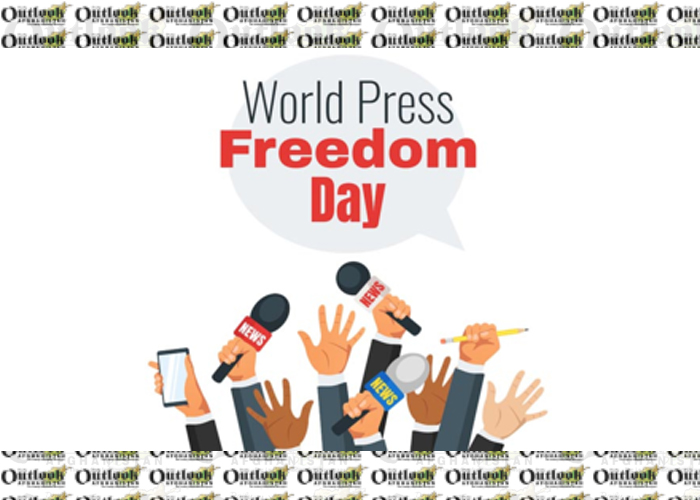In simultaneity to the exit of foreign troops from Afghanistan, the concerns and initials signs of civil war and downfall of democratic values are increasingly seen in Afghanistan. Based on local media news, the Taliban has conducted 141 attacks over the last 24 hours, mostly in Uruzgan, Zabul, Kandahar, Nangarhar, Badakhshan and Takhar provinces. The strategic properties mysteriously become the prey of fire one after another. The prices of immovable properties seem to decline in the country. The alarms of the civil war are frequently sounded from formal addresses in the country. In this regard, the latest alarm was sounded by the Chairman of the High Peace Council, Dr. Abdullah. Calling Afghan political leaders, he recently urged them to get united if not want to witness a bitter experience of civil war in the country. In general, Afghanistan’s political, economical, and cultural community is increasingly concerned about the future.
Among these concerns, the community of women and journalists seems more concerned than others. Given that today, May 3, is coincided with World Press Freedom Day, it is good to focus on the growing concerns and challenges of the journalist community in the country. Unfortunately, the journalist and media community faces a variety of challenges in Afghanistan. Media financial problems and life threats of journalists are two biggest challenges that exceptionally darken the future of journalists in the country. Over the past years, many of them have been forced to stay at home or leave Afghanistan and so, the situations of freedom of expression have deteriorated in recent years. Within last two decades, the extremist groups have openly shown their hostility to the Afghan media community. Taliban commanders and fighters have already used various threats, intimidation, and violence against the media community in the areas under their control, as well as in Kabul.
To have a deeper understanding of the situation of the media community in Afghanistan, it is enough to look at the sacrifices that were imposed on the media and journalists. Based on national sources, in the last 20 years, 133 journalists and media workers have been killed and dozens of others injured in war and violence in Afghanistan. According to watchdog reports, the targeted killing of journalists by the Taliban now threatens media freedom. In the past 14 months, at least 10 journalists and media activists have been the victims of targeted killings in the country. In the world rankings, Afghanistan is still the deadliest country for journalists. Thus, the elimination approach to the Afghan media community and the Taliban’s opposition to the media and freedom of expression have left the media and journalists with a bleak future.
Since the peace talks have reached sensitive stages, the journalists and the media appear to be systematically exposed to a greater threat of suffocating their voices. In the current war, the media seems a major target. With the perception that if the media becomes passive under the pressure of terrorism, the extremist groups will succeed to overcome the biggest obstacle. Specifically, the Taliban hope to cover up their past and present deeds by silencing critics through threats and violence. The Taliban understand that they can never find a rightful place among the people and public opinion with the presence of free media and a critical media community. Therefore, they wish to be freer with their cruel deeds in the absence of a critical media community so that their deeds are not reflected in the media.
Moreover, the Taliban’s hostility with freedom of expression has deeper roots in the ideology of Taliban. The ideological groups usually consider their understanding and interpretation of religion as an ultimate interpretation. As they cannot defend it with logic and rationality, they use the means of repression and violence to ensure its survival. Therefore, the ideology of Taliban has a natural paradox with freedom of expression and freedom of the media.
They have never been in favor of media freedom in the country. During the Taliban era, only Sharia Radio was active. The radio was merely a tool for Taliban ideological propaganda. The Taliban not only did not allow any free media to operate, but they also opposed all means of information and communication. Having television, satellite and even cassette was a crime during the Taliban Islamic Emirate.
Apart from the Taliban’s elimination approach to the media and journalists, the media is also not in a good position internal level. Media faced dozens of challenges at the internal levels such as the difficulty of accessing information, being defenseless against the repeated violence, the ignorance of the media revelations about corruption, and forgetfulness of the free media in the field of financial support.
Violence and war have plagued journalists for years, but no plan has ever been made that can provide immunity for journalists and media activities. Also, the perpetrators of violence against journalists have not been prosecuted in a manner to satisfy the media community.
In short, the Taliban’s opposition to freedom of expression and the internal insecurity of the media has seriously challenged the freedom of media in Afghanistan. If the media becomes passive under the pressure of war and intimidation, they will overcome the biggest obstacle.
Therefore, the Afghan government, the international community, and the media support institutions must not allow the voice of freedom of expression to be stifled in Afghanistan. Dealing decisively with the perpetrators of violence and redefining the immunity of journalists seem as central demands of the Afghan media community. Journalists expect the international community to recognize freedom of expression as a principle in dialogue with the Taliban.
Home » Opinion » World Press Freedom Day and Its Growing Challenges in Afghanistan
World Press Freedom Day and Its Growing Challenges in Afghanistan
| Mohammad Zahir Akbari

